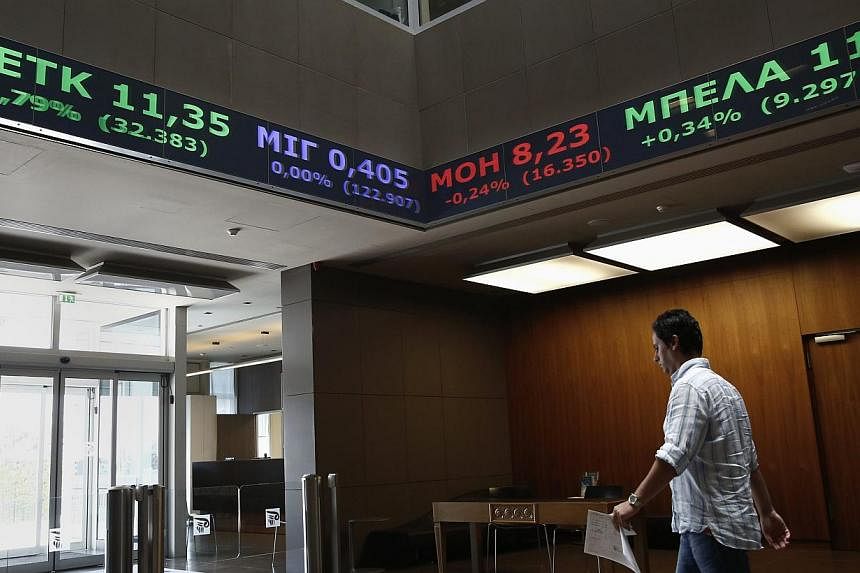ATHENS (AFP) - Greek bonds and stocks slumped on Wednesday as investors fretted about the political situation in the country and the government's intention to end its IMF programme early.
The Athens exchange's main index plunged more than 8.0 per cent in afternoon trading, after having fallen 5.7 per cent on Tuesday.
Meanwhile, the price of 10-year Greek government bonds fell, sending the rate of return to investors up sharply.
The yield rose to 7.685 per cent, its highest level since March, from 7.008 per cent on Tuesday.
Bond analyst Patrick Jacq at BNP Paribas bank said there were a number of reasons for the spike in the yield.
"The first is that causing a bit of fear in saying that it doesn't need the bailout programme any longer."
Greece has signalled it may terminate its IMF programme early when its EU-ECB aid ends in December, despite US$16 billion (S$20.4 billion) left under the deal that lasts until 2016.
After four years under a rescue by the IMF, EU and European central bank - the so-called troika - worth about US$300 billion overall, Athens has largely repaired its finances.
The country is eager to get free from the tight budgetary and policy auditing exercised by the International Monetary Fund, European Union and European Central Bank.
"The adverse market reaction to the Greek government's plans to exit its IMF bailout early has underlined the fragility of market sentiment towards the country and presumably made it very unlikely that Greece will be able to carry through its plans," London-based Capital Economics said on Tuesday.
But exiting the bailout could have tangible political benefits for the centre-right, socialist coalition government of Prime Minister Antonis Samaras.
The strict bailout conditions have led to the left-wing anti-austerity Syriza party taking the lead in opinion polls, outpacing the coalition parties together.
Political observers believe exiting the bailout would help Samaras gain the extra votes the coalition needs to ensure the election of a president next year, without which an early vote would be triggered.
The markets don't like the political uncertainty either.
"The political situation is a short-term concern, even if the leftist party has changed has become much more pro-European," said Jacq.
Meanwhile, Fitch Ratings added to the gloomy sentiment by warning that despite progress made in shoring up Greek banks that EU-wide stress tests could reveal additional capital shortfalls.

